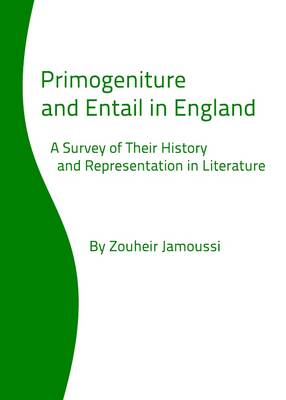This book examines the history and literary representation of one of the most idiosyncratic aspects of English socio-economic history, namely primogeniture as a rule governing the succession to landed estates. This double approach roughly covers the 17th, 18th and 19th centuries. Although this inheritance custom usually made the elder son sole heir to the whole paternal estate, to the exclusion and sometimes the utter impoverishment of the other children, and was therefore denounced as unjust and against nature, it also had its unflinching supporters. Indeed there was enough weight in the socio-political arguments of the latter to explain why this custom continued to dominate English social life for so long. This fundamental contradiction was at the heart of an ideological debate in which the plight of younger sons and the relationship between the individual, the nuclear and patrilineal family were among the issues permanently discussed. Neither were these issues the only hotly debated primogeniture-related questions. Indeed there was not one major economic, social and political development throughout the period examined to which primogeniture and entail did not directly or indirectly relate. The survey of the ideological debate on primogeniture and entail undertaken here is, to our knowledge, unprecedented.Moreover, primogeniture and entail were perceived by playwrights and novelists as a major cultural phenomenon and treated as such. The overview of their literary representation attempted here is, we believe, also unprecedented. As may be expected, emphasis throughout this book is laid on the interaction between history and literature.
- ISBN13 9781443828642
- Publish Date 28 April 2011 (first published 1 January 2011)
- Publish Status Active
- Publish Country GB
- Imprint Cambridge Scholars Publishing
- Edition Unabridged edition
- Format Hardcover
- Pages 295
- Language English
